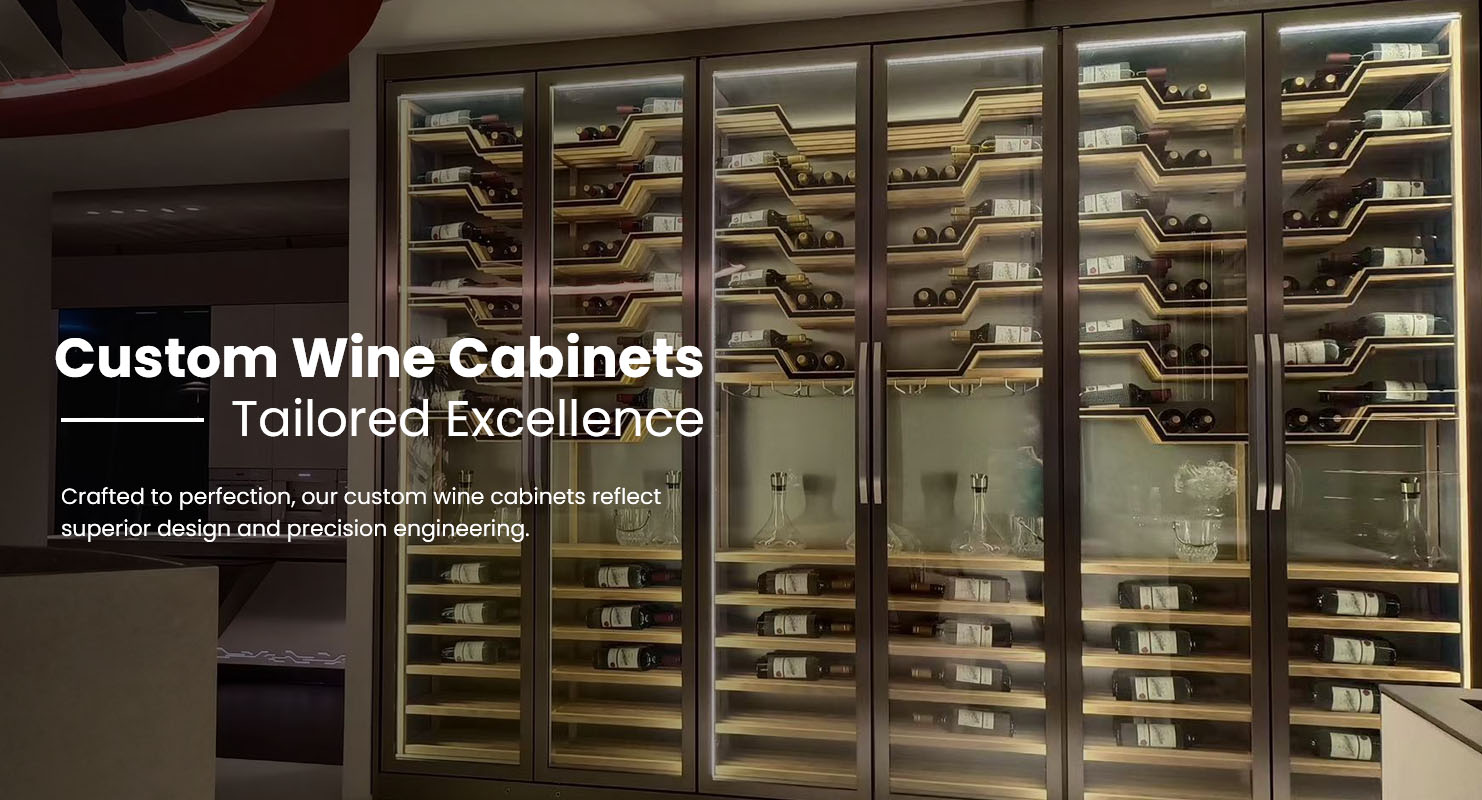Is A Wine Cooler The Same As A Fridge
At first glance, a Wine Cooler may look similar to a household refrigerator — both are temperature-controlled appliances designed to keep beverages cold.
However, the technology, temperature range, humidity control, and storage design inside a wine cooler are very different from those of a regular fridge.
If you’re serious about preserving the flavor and longevity of your wine, understanding these differences is essential.
1. Temperature Range and Precision
Wine Coolers
Wine coolers operate within a narrow, stable temperature range — typically between 5°C and 18°C (41°F to 65°F).
This range is ideal for storing both red and white wines, depending on the set mode.
Winton’s precision compressors and thermostats maintain consistent temperatures within ±1°C, avoiding the fluctuations that can degrade wine quality.
Refrigerators
In contrast, household fridges are designed to store perishable food, operating around 0°C to 4°C (32°F to 39°F).
These low temperatures are far too cold for wine, especially reds, and can mute aromas, slow aging, and damage corks.
So while a fridge keeps food fresh, it does not preserve wine properly over time.
2. Humidity Control
Wine Coolers
Maintaining proper humidity — ideally 50–75% — is critical for wine preservation.
A wine cooler maintains this balance using moisture-retaining materials, fan-assisted air circulation, and balanced condensate control.
Correct humidity keeps corks moist, preventing them from shrinking or letting air seep into the bottle, which would oxidize the wine.
Refrigerators
Standard fridges are built for dry-cold storage.
Their internal air is much drier (around 20–30% humidity) to prevent frost and bacterial growth on food.
This environment dries out corks quickly, causing leaks or contamination — one of the main reasons professional wine storage requires a dedicated cooler.
3. Airflow and Vibration
Wine Coolers
Wine coolers are engineered for low-vibration performance, often using silent compressors or thermoelectric systems.
Winton’s units, for example, feature vibration-dampening compressors and rubber-mounted fans to minimize movement.
This matters because even small vibrations disturb sediment in the bottle, altering the flavor balance during aging.
Refrigerators
Fridges run high-power compressors that cycle on and off frequently, generating more vibration and noise.
This mechanical activity can negatively impact the texture and clarity of stored wine over time.
4. Shelving and Storage Design
Wine Coolers
Wine coolers are purpose-built for horizontal bottle storage, using contoured wooden or metal racks that fit standard 750 ml bottles securely.
The horizontal position keeps corks in constant contact with wine, ensuring airtight sealing.
Many Winton models feature sliding wooden shelves, LED lighting, and tinted glass doors to protect against UV light.
Refrigerators
Fridges are designed for varied food items, not bottles.
Shelves are flat and adjustable but not shaped to cradle wine.
When bottles are stored upright for long periods, corks dry out, increasing oxygen exposure and flavor loss.
5. Light and UV Protection
Wine Coolers
Wine coolers use low-heat LED lighting and UV-filtered glass doors to shield wine from harmful light.
Ultraviolet rays can degrade organic compounds in wine, leading to “light-struck” spoilage — an irreversible chemical change.
Refrigerators
Regular fridges use bright interior lights that emit minor UV radiation and generate heat near bulbs.
They offer no UV protection, which can affect wine stored for more than a few days.
6. Dual-Zone and Single-Zone Control
High-end wine coolers often feature dual-zone temperature systems, allowing users to store red and white wines separately:
| Wine Type | Ideal Temperature | Recommended Zone |
|---|---|---|
| Red Wines | 12°C–18°C | Upper Zone |
| White Wines | 7°C–12°C | Lower Zone |
Winton’s dual-zone wine cabinets maintain both environments simultaneously, providing professional-grade storage for collectors and restaurants.
Regular fridges cannot maintain two precise temperature levels at once.
7. Energy Efficiency and Operation
Wine coolers consume less energy than household refrigerators because they:
Run at moderate temperatures, requiring less compressor activity.
Feature efficient R600a refrigerant systems and optimized insulation.
Maintain steady operation instead of frequent cooling cycles.
Winton’s coolers are engineered for low noise (<42 dB) and energy-saving performance, suitable for homes, hotels, and wine bars.
8. Cost and Longevity
While wine coolers generally cost more per liter of storage than fridges, they offer specialized preservation performance.
Their components — such as Embraco compressors and copper evaporators — are designed for durability, stable humidity, and quiet operation.
For professional or long-term wine storage, this investment ensures that your collection ages gracefully and retains full flavor integrity.
9. Frequently Asked Questions
1. Can I store wine in a regular refrigerator?
Only for short-term use (a few days). The cold and dry air can damage corks and dull the taste if used long-term.
2. Can a wine cooler store other drinks?
Yes. It can store soft drinks, water, or beer, but remember that its higher temperatures are optimized for wine, not ice-cold beverages.
3. Do wine coolers freeze wine?
No. The thermostat limits temperature to a minimum of around 5°C (41°F), safely above the wine’s freezing point.
4. Are wine coolers noisy?
Quality units like Winton’s operate quietly, typically below 42 dB — quieter than a conversation in a library.
5. How long can wine last in a cooler?
Properly stored wine can age for years without losing flavor, provided humidity and temperature remain stable.
Conclusion
A wine cooler is not the same as a refrigerator.
While both cool items, only a wine cooler provides the precise temperature control, humidity balance, vibration resistance, and UV protection required for wine preservation.
A regular fridge can chill wine, but a dedicated wine cooler protects its aroma, texture, and character over time.
WINTON Wine Cooler designs and manufactures professional wine storage solutions equipped with intelligent temperature control, silent compressors, and energy-efficient cooling systems — perfect for homes, restaurants, and wine cellars.
Explore the full product range at www.wintonwinecooler.com — where technology preserves the art of wine.
Previous: What Is A Built In Wine Cooler


